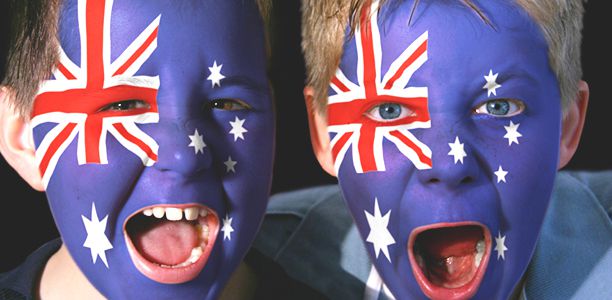To adults they may seem fairly innocuous, however the sponsor logos that adorn the jerseys of professional sports people could be increasing children’s awareness of junk food, alcohol and gambling.
Deakin University Associate Professor of public health Samantha Thomas, with colleagues from the University of Wollongong, investigated the extent to which children can match shirt sponsors with the correct sporting team, whether they associated some types of sponsors with certain sporting codes, and if age influenced their recall of sponsor brands and teams.
They found that children as young as five were able to match teams with the correct jersey sponsor, that alcohol and gambling sponsors were more highly associated with the National Rugby League and that 9—12 year olds were more likely to correctly identify team sponsors.
“If building brand awareness in the next generation of consumers is the intention of the junk food, alcohol and gambling industries then it looks like it may well be working,” Associate Professor Thomas said.
“The results of this study suggest that sponsor promotion during matches is contributing to increased awareness amongst children of unhealthy products.
“Australian sport is saturated by the promotion of these products and is particularly common on player jerseys. At a time when junk food, alcohol and gambling are major contributors to poor health and social outcomes in this country, Australian sporting codes should be looking to reduce the number of unhealthy sponsorship relationships.”
The study involved 85 children aged 5—12 years in New South Wales who were asked to arrange two sets of magnets (one containing sporting teams, the other brand logos) in the way they deemed most appropriate. The magnets included the teams and their correct sponsors along with dummy sponsors within the categories of junk food, alcohol, gambling and control brands (a bank and health organisation). As well as matching the teams and sponsors, the children’s team and brand liking was also measured. The seven sporting teams were chosen as they represented a mix of local, state, interstate and national level professional teams. Of the teams, two had shirt sponsorships with junk food brands, two with alcohol brands and one with a casino.
The results of the study showed that over three quarters (77%) of the children were able to identify at least one correct shirt sponsor. The children also associated alcohol and gambling brands more highly with the more popular sporting code, the National Rugby League compared with the Victorian-based Australian Football League. Even when the children chose the wrong sponsor for a team, they were more likely to choose from one of the junk food, alcohol and gambling categories.
Age was found to have an effect on the number of shirt sponsors correctly recalled with 9—12 year olds more likely that 5—8 year olds to match correctly. Of the children’s top five most like brands, four were junk food brands, while one in five selected either an alcohol or gambling brand.
“This study suggests that sporting team sponsorships may be contributing to a consumer socialisation process whereby children, through repeated and sustained exposure to unhealthy commodity brands during professional sporting matches, begin to see them more favourably and whereby these brands are normalised as part of everyday life,” Associate Professor Thomas said.
“While there is some regulation that protects children from the marketing of unhealthy products, these findings suggest that they do not go far enough as children are still exposed to and recall these sponsorship relationships.”
Obesity Policy Coalition Executive Manager Jane Martin said the findings of this study were further proof of the powerful influence junk food sponsorship can have on children.
“Evidence shows that exposure to unhealthy food marketing affects what children consume and demand from their parents, as well as their perceptions of certain foods. This can contribute to poor diets, weight gain and obesity, both in childhood and later in life,” Ms Martin said.
“Rather than marketing products which are inconsistent with the healthy, active lifestyle implied by sport, sporting clubs should be using the spotlight as an opportunity to promote healthy lifestyle choices to the millions of children who regularly watch and play sport in Australia.”
(Source: Deakin University)










